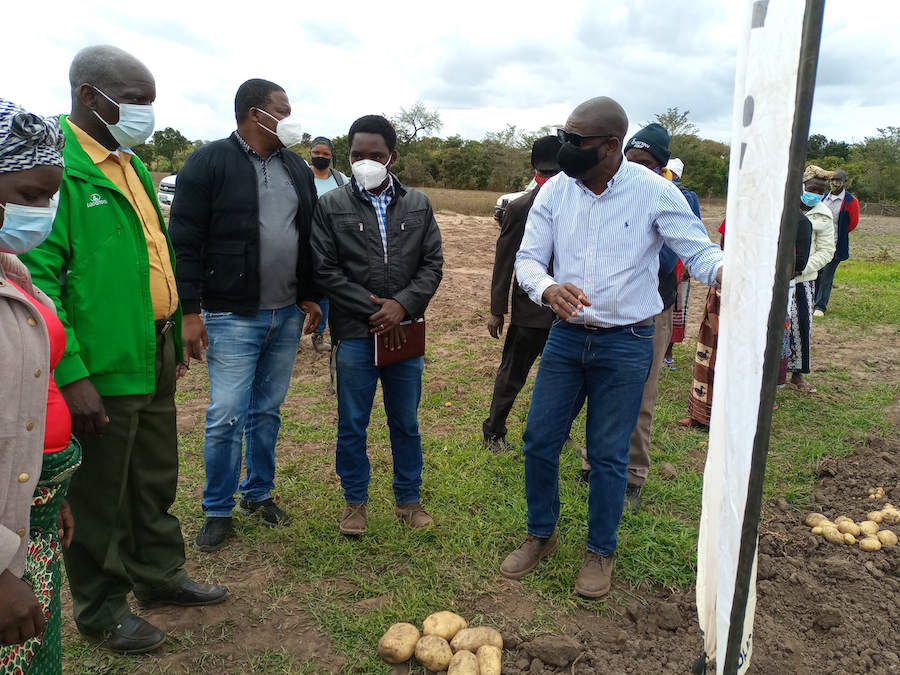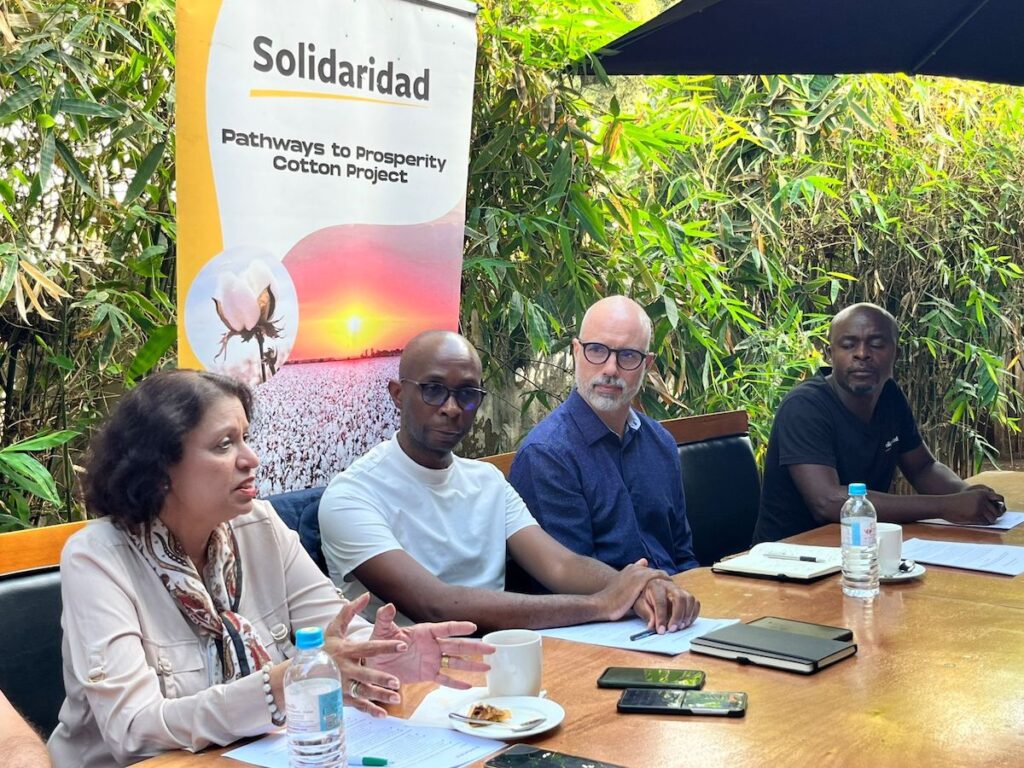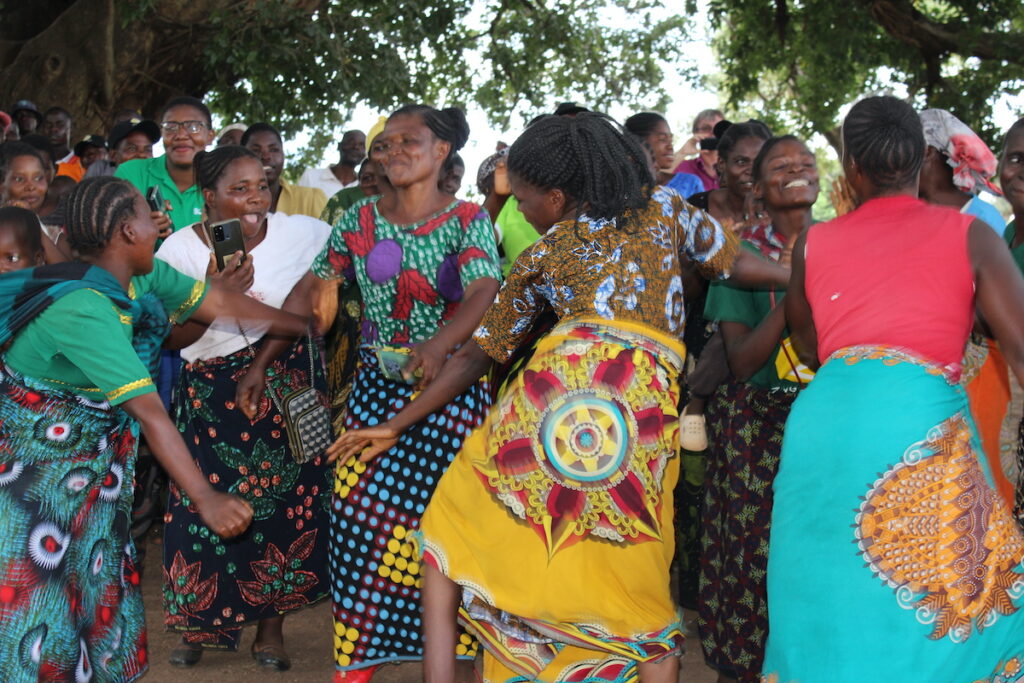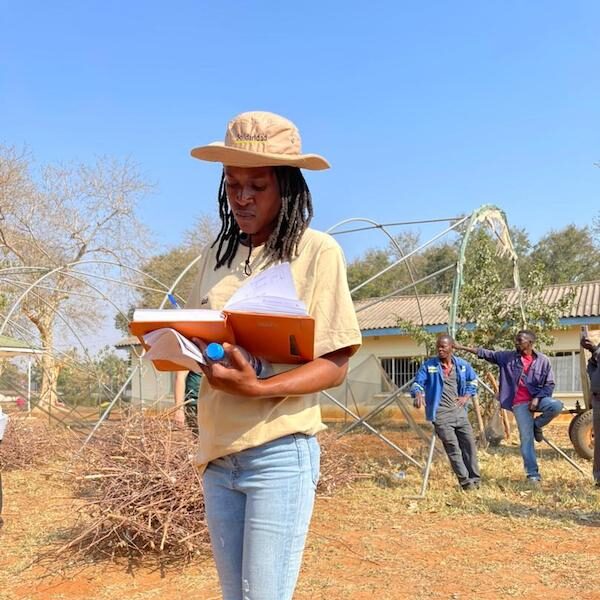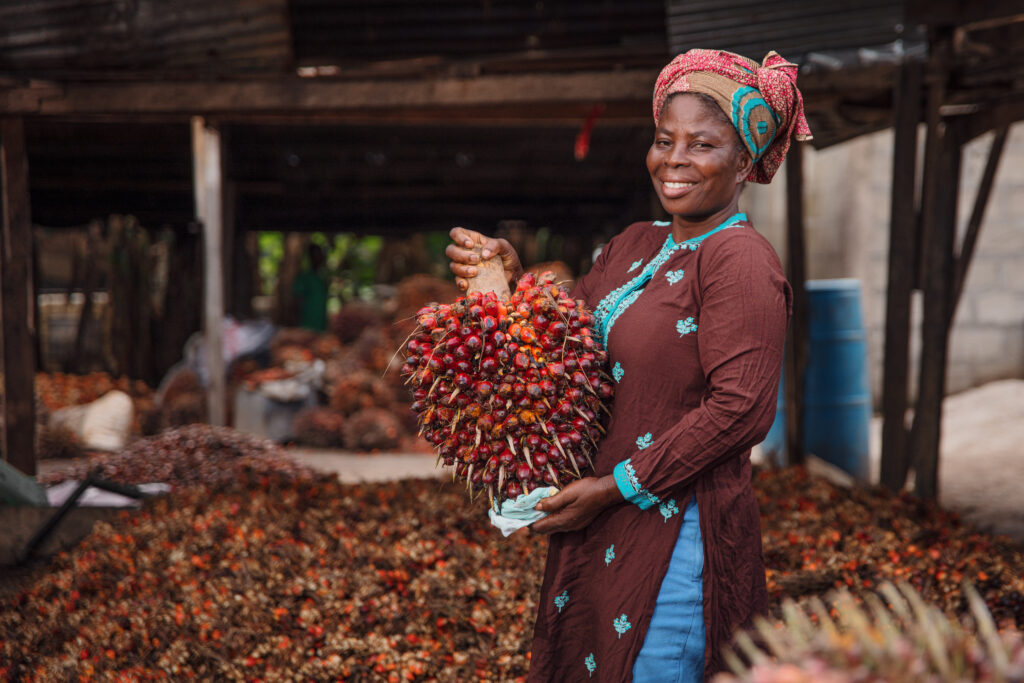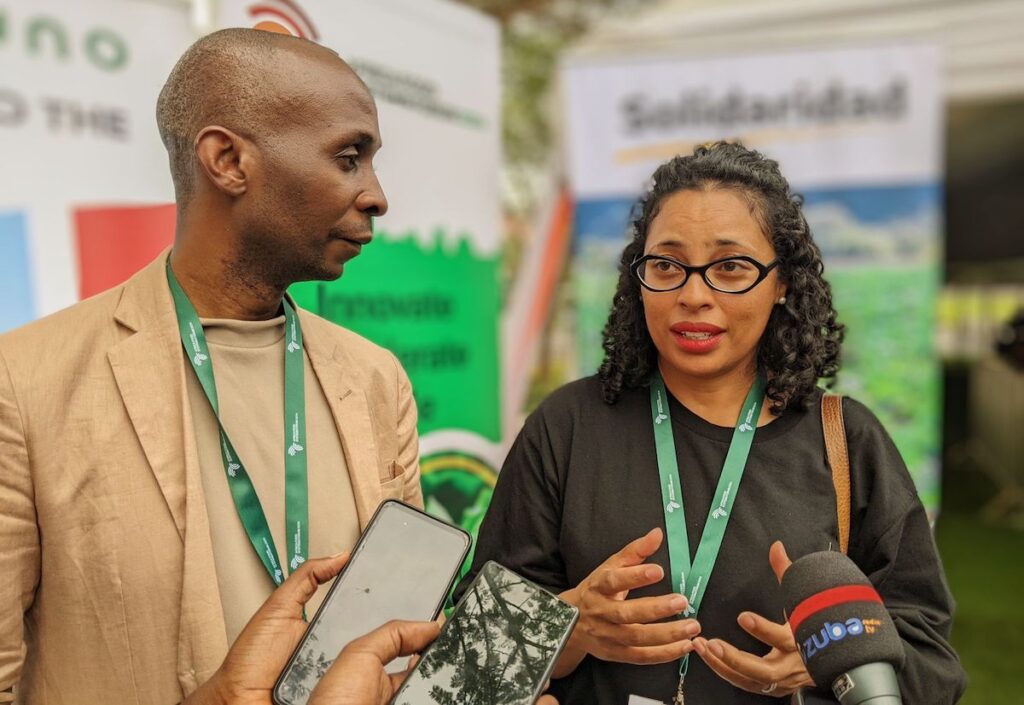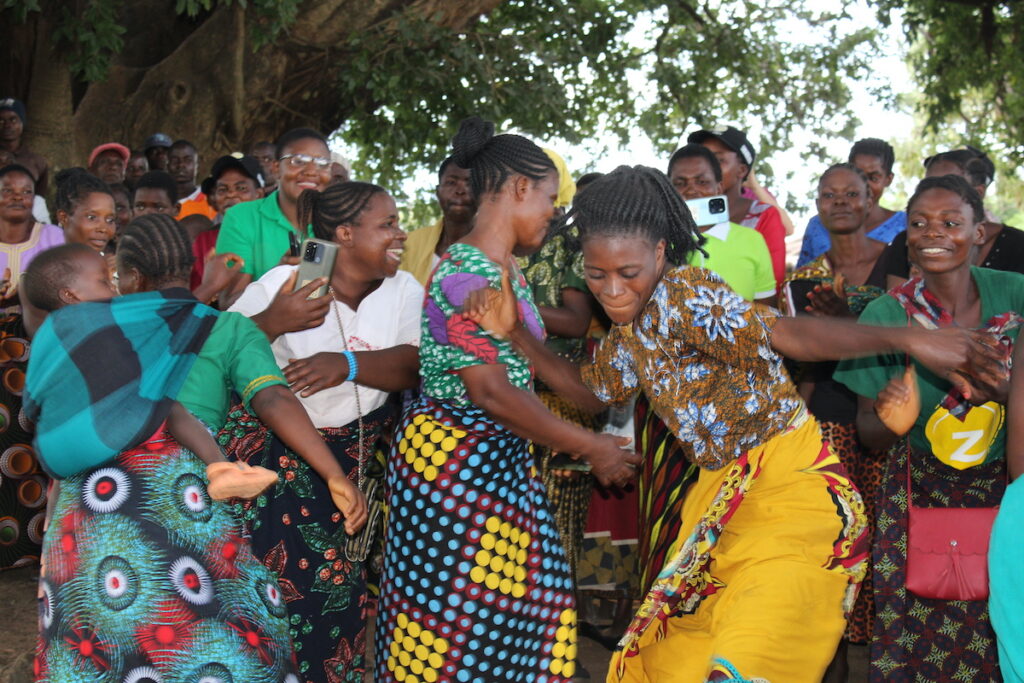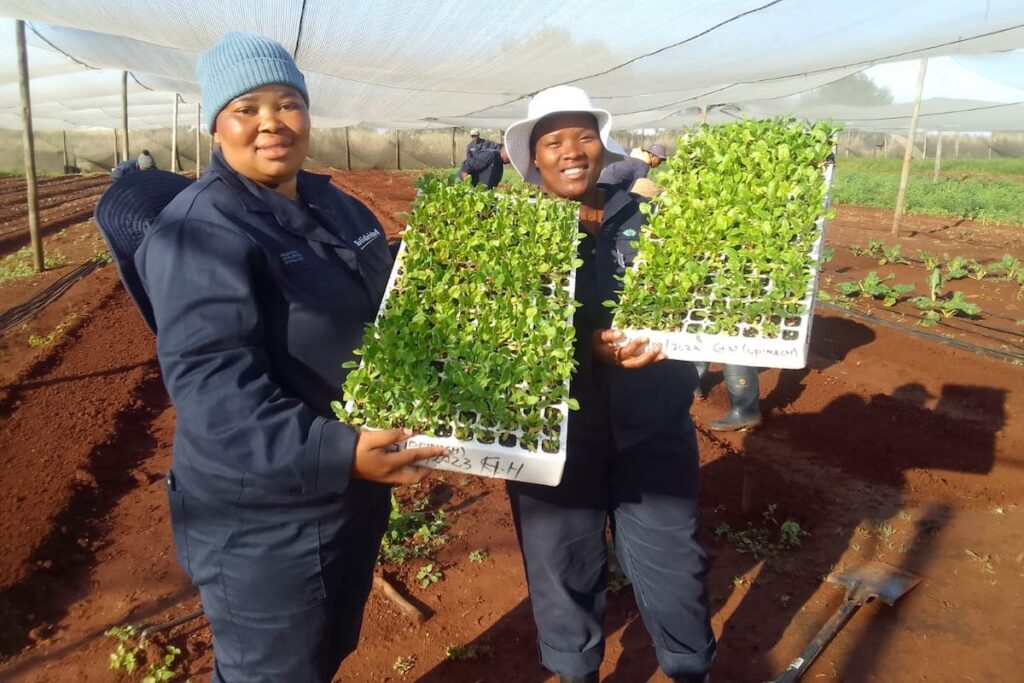The Zambezi Valley, located in northern Mozambique, is an ideal agro-ecological zone for potato farming, with a sufficient water supply. Despite this potential, small-scale farmers have limited bargaining power with buyers. Moreover, these issues are exacerbated by various challenges, including high fertilizer costs and limited access to certified seeds. This results in inefficient fertilizer usage, inadequate soil nutrients, ineffective pest and disease management, and low yields and therefore a limited number of potato farmers in the valley.
Having identified potato farming as a significant area of income opportunity for many households, Wageningen University & Research and Solidaridad partnered with input suppliers Omnia, Montesco and Bayer to launch a potato programme in Tete and Manica.
The project aimed to demonstrate sustainable and modern production practices that smallholders could easily understand and implement. A key objective of the programme was to increase awareness among a wider audience of farmers and encourage them to adopt simple cultivation schemes and techniques, use optimised inputs and use easy-to-adopt technology and know-how.
The demo fields were developed in Tsangano, Vanduzi, and Angonia in 2022. The partners designed a simplified scheme featuring only one variety, Mondial. The Wageningen University & Research team shared good agricultural practices to help farmers achieve the best results. The demo plots taught farmers the right cultivation techniques such as proper land preparation, irrigation, row distance, planting depth and plant spacing.
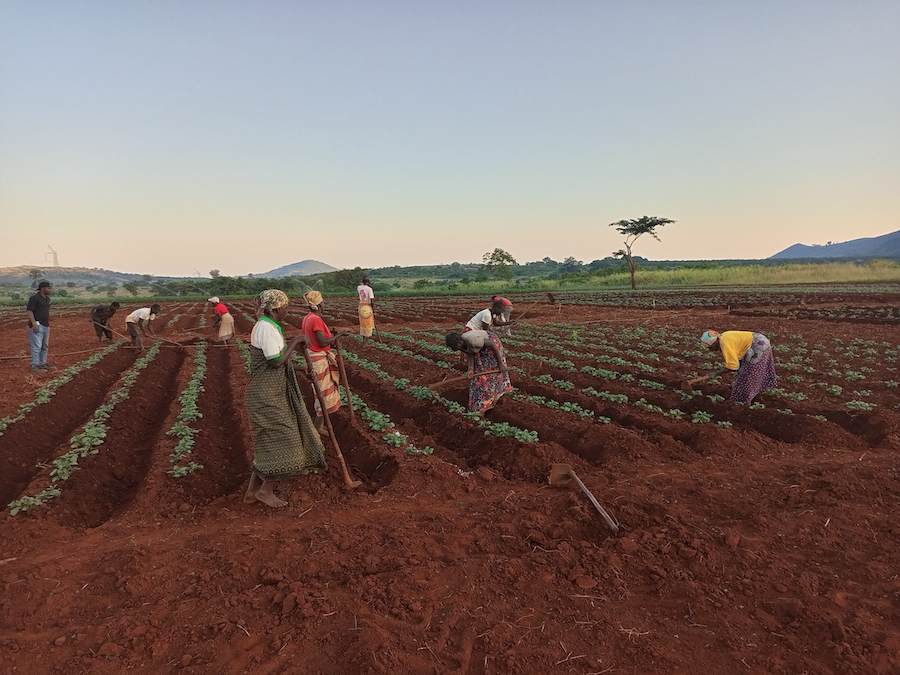
We simplified fertilization to achieve 40 metric tonnes/ha and used one-acre plot spacing. Farmers were also required to implement integrated pest management and use a preventive approach to late blight using modern agrochemicals.
Empowered Zambezi potato farmers improve their yields
The results of the demo plots surpassed expectations, especially in Angonia. On average, the yield across the three plots was 34.3 metric tonnes/ha, even with a 30% loss from the combined production. The average profit for a one-hectare plot of potatoes was 1,039,702 MZN (16,272 USD), using CT 400 seed, the 25 cm x 90 cm planting method, and 40 metric tonnes (MT) of fertilization.
The project’s impact is evident in the success of farmers like Fabiao Miguel. Fabiao, who has been farming potatoes on a quarter-hectare plot, saw a significant improvement in his yields after participating in the project for two years. Before the project, his farm yielded 15 MT of potatoes. After adopting good agricultural practices and improving the quality of his inputs, he increased his yield to 25 MT.
Fabio says he is very happy to have participated in these trials with the University and Solidaridad, and that he liked most of all to hear that farmers can produce this much potato in different sizes as if it were imported from Zimbabwe or South Africa. He has imported seed through Monty Hunter and is now storing fertilizers, fungicides and pesticides
After what I have learned, I am already making a difference, and I feel I am on the right track, based on the volumes I am harvesting now.
Fabiao Miguel, Potato Smallholder
Programme success demonstrated that Mozambican farmers could improve and increase potato yields. A yield of 35–55 MT per hectare paves the way for a bright future for farmers. This high level of performance requires good agricultural practices implementation, timely inputs, motivation, and commitment. This positive outcome highlights the need to continue supporting similar initiatives to improve small-scale farmers’ livelihoods.
Going forward, we should explore possible schemes for farmers to access inputs, and encourage input suppliers like Omnia to continue to set up infrastructure in the valley. By working together, we can ensure that small-scale farmers like Fabiao Miguel can reap the benefits of improved yields and profitability, leading to a brighter future for themselves, their families and their communities.

